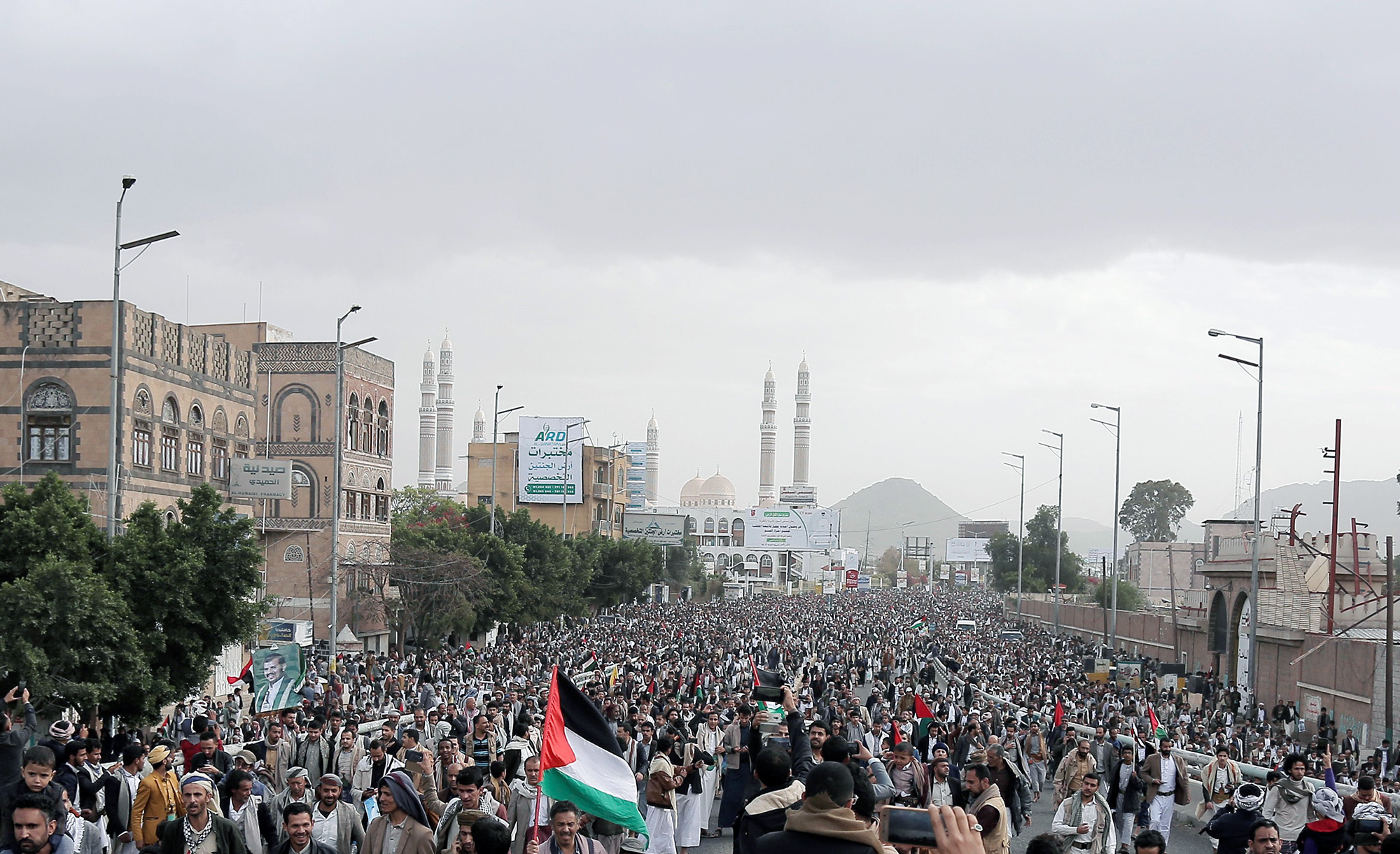The ongoing conflict in the Middle East has taken a new turn as Yemen emerges as a potential hotspot in Israel’s campaign against Iranian-backed militias. With recent escalations between Israel and the Houthi forces in Yemen, the region could become a critical theater in Israel’s broader strategy to counter Iran’s influence.
The exchange of missile and drone attacks, coupled with Israel’s strategic airstrikes, highlights the growing tensions that could reshape the geopolitical dynamics of West Asia.
The Escalating Conflict Between Israel and the Houthis
Over the past two weeks, Israel has intensified its military operations against the Houthis, conducting five rounds of airstrikes in Houthi-controlled territories.
These strikes are a direct response to the Houthis’ aggressive actions, including the launch of over 200 missiles and 170 drones targeting Israel. The Houthis, who are known for their active presence in the Red Sea, pose a significant threat to both regional stability and global shipping routes.
Israeli Prime Minister Benjamin Netanyahu and Defense Minister Yoav Gallant have publicly declared their intention to act decisively against the Houthis.
Read : Israeli Jets Hit Yemen After Houthi Drone Attack on Tel Aviv: 87 injured
Netanyahu’s commitment to employing “force, determination, and sophistication” reflects Israel’s resolve to neutralize threats posed by this group, similar to its campaigns against Hamas in Gaza and Hezbollah in Lebanon.
Read : Yemen’s Houthis Fire Palestine named Ballistic Missile Towards Israel’s Eilat
The Houthis’ aggression is not limited to missile attacks; their strategic positioning in the Red Sea underscores their capacity to disrupt critical maritime routes. Israel’s airstrikes have targeted key Houthi infrastructure, yet the group’s resilience and adaptability have made it difficult for Israel to achieve a decisive victory.
The Role of the Houthis and Iranian Influence
The Houthis are a vital component of the so-called “Axis of Resistance,” a coalition of Iranian-backed militias opposing Israel’s presence and influence in the Middle East. Unlike Hamas and Hezbollah, the Houthis enjoy a level of autonomy that makes them less reliant on Iranian directives, thereby complicating Israel’s strategy.
With Iran weakened by earlier military strikes and Hezbollah observing a ceasefire, the Houthis have emerged as a significant force in the region.

Their continued aggression underscores their determination to challenge Israel and maintain their foothold in Yemen. This group’s role in destabilizing the region is amplified by their support from Tehran, which provides them with advanced weaponry and strategic guidance.
Israel’s perspective is clear: the Houthis are not merely a local threat but a broader challenge to regional and global stability. Their activities in the Red Sea, combined with their missile and drone capabilities, highlight the need for a coordinated effort to neutralize their impact.
Strategic Challenges and Potential Pathways Forward
While Israel’s airstrikes have inflicted damage on the Houthis’ infrastructure, several challenges hinder a comprehensive resolution.
Yemen’s mountainous terrain provides natural fortifications for Houthi strongholds, making it difficult for Israel to replicate its successes in Gaza and Lebanon. Moreover, the Houthis’ ability to withstand external pressure demonstrates their strategic independence and resilience.
The complexities of Yemen’s geography and the Houthis’ entrenched position suggest that a purely military approach may be insufficient.
Experts argue that Israel will need to collaborate with allies such as the United States and Arab nations to develop a multi-faceted strategy. This approach could involve diplomatic initiatives aimed at curbing Houthi aggression, alongside sustained military actions to weaken their capabilities.

The potential involvement of international stakeholders underscores the broader implications of the conflict. Yemen’s strategic location near vital maritime routes adds a layer of urgency to resolving the crisis. A failure to address the Houthi threat effectively could result in prolonged instability, affecting regional security and global trade.
Yemen’s emergence as a potential battleground in Israel’s campaign against Iranian-backed militias marks a critical juncture in the Middle Eastern conflict.
The escalating tensions between Israel and the Houthis highlight the challenges of countering a resilient and strategically positioned adversary. As Israel navigates this complex landscape, its ability to balance military action with diplomatic efforts will be crucial in shaping the outcome.
The conflict’s implications extend beyond Yemen, influencing the broader dynamics of West Asia. As the Houthis continue to assert their presence, supported by Iran’s strategic backing, the region faces a prolonged period of uncertainty. Yemen’s future as a battleground remains uncertain, but its role in the evolving Middle Eastern conflict is undeniable.

